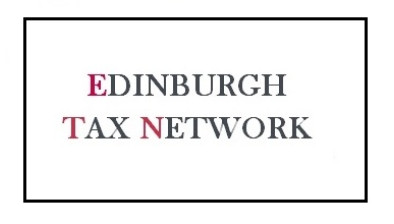IFS: The Chancellor needs a plan for a better tax system, not a half-baked dash for revenue

The UK is in a fiscal bind and it is likely that the Chancellor Rachel Reeves will return with another tax-raising Budget on 26 November, according to the Institute of Fiscal Studies (IFS).
One much-asked question is whether Ms Reeves will be able to raise large sums without breaking Labour’s high-profile manifesto promise not to “‘ncrease National Insurance, the basic, higher, or additional rates of Income Tax, or VAT”.
New analysis by IFS researchers, published as part of the IFS Green Budget 2025, funded by the Nuffield Foundation and produced in association with Barclays, concludes that:
- It would be possible for the Chancellor to raise tens of billions of pounds a year more in revenue without breaking the letter of Labour’s manifesto promise not to increase the ‘big three’ taxes. But doing so would not be straightforward – not least because of serious constraints on the next four biggest taxes (corporation tax, council tax, business rates and fuel duties). Some other tax-raising options would be especially economically harmful. A Budget focused purely on the politics could prove considerably worse on the economics.
- In particular, if Ms Reeves is considering increasing taxes on returns to capital – such as rental income, dividend income, interest income, self-employment profits or capital gains – simply raising tax rates without reform would do more economic damage than is necessary. Proper reform would reduce the disincentive effects that these taxes currently have on investment and therefore the unnecessary drag that they have on growth.
- Tax reform would be a worthy goal at any Budget, but is especially valuable if the Chancellor wishes to raise more revenue, as it would help lighten the burden of higher taxes. This is an opportunity for Ms Reeves. There are plenty of steps the government could take towards a tax system that is fairer, simpler, and less damaging to growth.
Isaac Delestre, a senior research economist at IFS and an author of the chapter, said: “Revenue-raising seems likely to be a major goal of the coming Budget. But if Rachel Reeves limits her ambition to collecting more revenue, she will have fallen short.
“Almost any package of tax rises is likely to weigh on growth, but by tackling some of the inefficiency and unfairness in our existing tax system, the Chancellor could limit the economic damage.
“The last thing we need in November is directionless tinkering and half-baked fixes. There is an opportunity here. The Chancellor should use this Budget to take real steps down the road towards a more rational tax system that is better geared to promoting the prosperity and well-being of taxpayers.”
Helen Miller, director of IFS and an author of the chapter, said: “What will make this Budget important is the choice not only over how much tax to raise, but over how to raise it.
“There is an opportunity to be bold and take steps towards a system that does less to impede growth and works better for us all. Muddling through by simply raising rates of current taxes might appear the easier option – Rachel Reeves’s predecessors in the Treasury have all too often shied away from taking bold steps to improve the tax system. But relying on badly designed taxes to bring in additional revenue will bring unnecessary economic damage.”
Mark Franks, director of welfare at the Nuffield Foundation, said: “The government needs to identify additional revenue sources to deliver its plans for stabilising public services, which remain under intense strain.
“However, with many straightforward options already ruled out, there is a risk of resorting to tax measures that further complicate the system and create the wrong incentives.
“Whilst such steps might achieve short-term fiscal gains, they should be avoided if they undermine economic growth and people’s well-being and financial security in the longer term.”
The chapter surveys a broad range of tax-raising options, setting out the trade-offs and costings and highlighting opportunities for reform. Additional findings include:
- Raising the rates of income tax, National Insurance contributions (NICs) or VAT – the three biggest taxes – would straightforwardly raise large sums but explicitly break Labour’s manifesto commitments. Extending the ongoing freeze to personal tax thresholds would raise a significant amount but, if it included a freeze to NICs thresholds, would also break the manifesto pledge and would leave the real-terms level of thresholds – and the size of the tax rise – to be determined by the vagaries of inflation.
- We caution against introducing an annual wealth tax. Introducing a new recurrent tax on stocks of wealth would face huge practical challenges. It would also penalise saving and, the more it was concentrated on the very wealthy, the more it would incentivise them to leave (or not come to) the UK. It would not be a well-targeted way to tax the large returns that wealth can generate and, as such, would be no substitute for well-functioning taxes on capital income and gains. If the Chancellor wants to raise more from the better-off, a better approach would be to fix existing wealth-related taxes, including capital gains tax.
- Property taxation is an area in desperate need of reform. Revenue-raising within the existing system is possible, for example by increasing council tax across the board or for high-band properties – though this extra revenue would accrue to local authorities, rather than the exchequer, in the first instance. It would be much better to raise any additional revenue from a reformed system. A good end goal would be a reformed council tax (or a new recurrent property tax) that was proportional to up-to-date property values in place of the current council tax (which in England is still ludicrously based on property values as of 1991) and stamp duty land tax on housing (which discourages relocation and upsizing/downsizing, and drags on growth).
- A new tax on income, hypothecated to a particular spending stream, may be a politically attractive way to sidestep some specific manifesto commitments and increase taxes on a large tax base. But introducing a new tax would add needless complexity to the system, and any hypothecation would either be unjustifiably restrictive (such that spending on a particular item was genuinely tied to a specific revenue stream) or economically meaningless (in the sense that the amount raised from the tax bore no relation to the amount spent on an area). The government could explain why it is raising taxes without the need for a new, hypothecated tax.
- Restricting income tax relief for pension contributions would raise large sums but should be avoided. It would be unfair and distortionary to restrict up-front relief but continue to tax pension income at the taxpayer’s marginal rate. It would also be practically extremely difficult to attribute employer contributions to defined benefit arrangements to specific individuals so that they could be taxed. There are better options for increasing tax on pensions, including levying some NICs on employer pension contributions and/or reforming the 25% tax-free element.
Other tax options are available, and many are discussed in the chapter.







